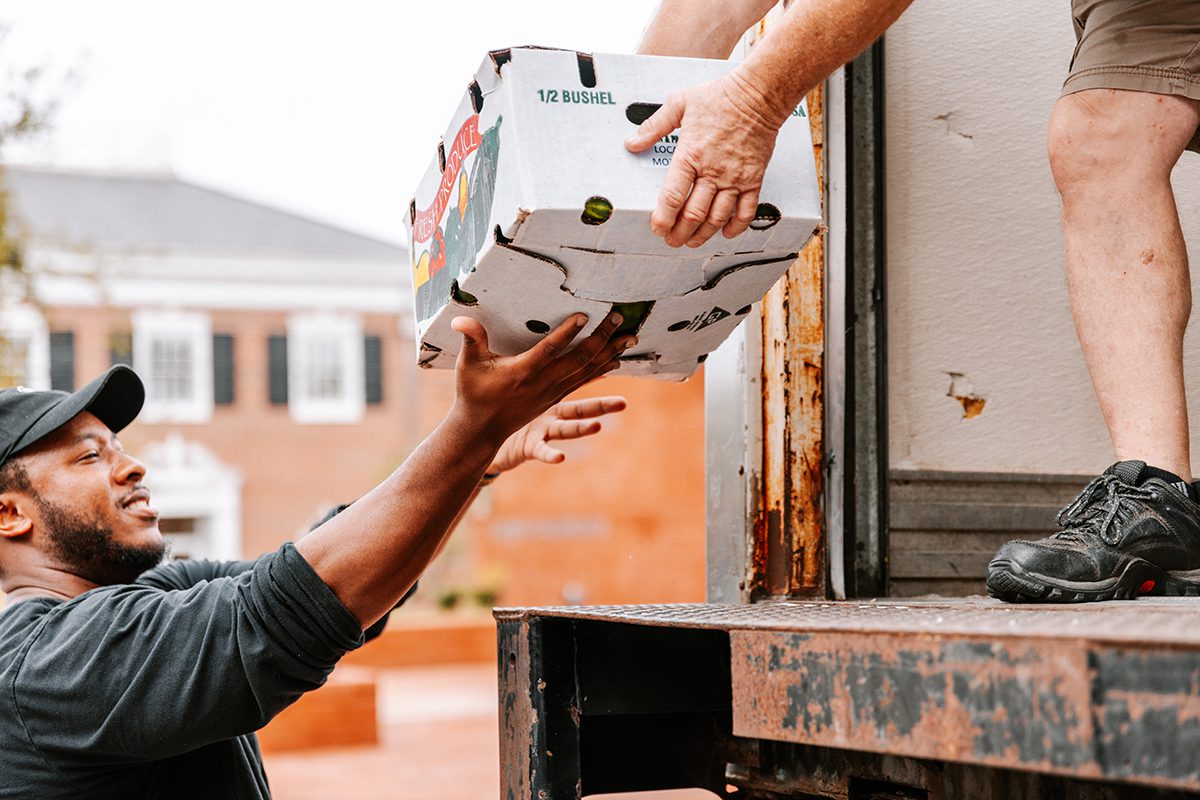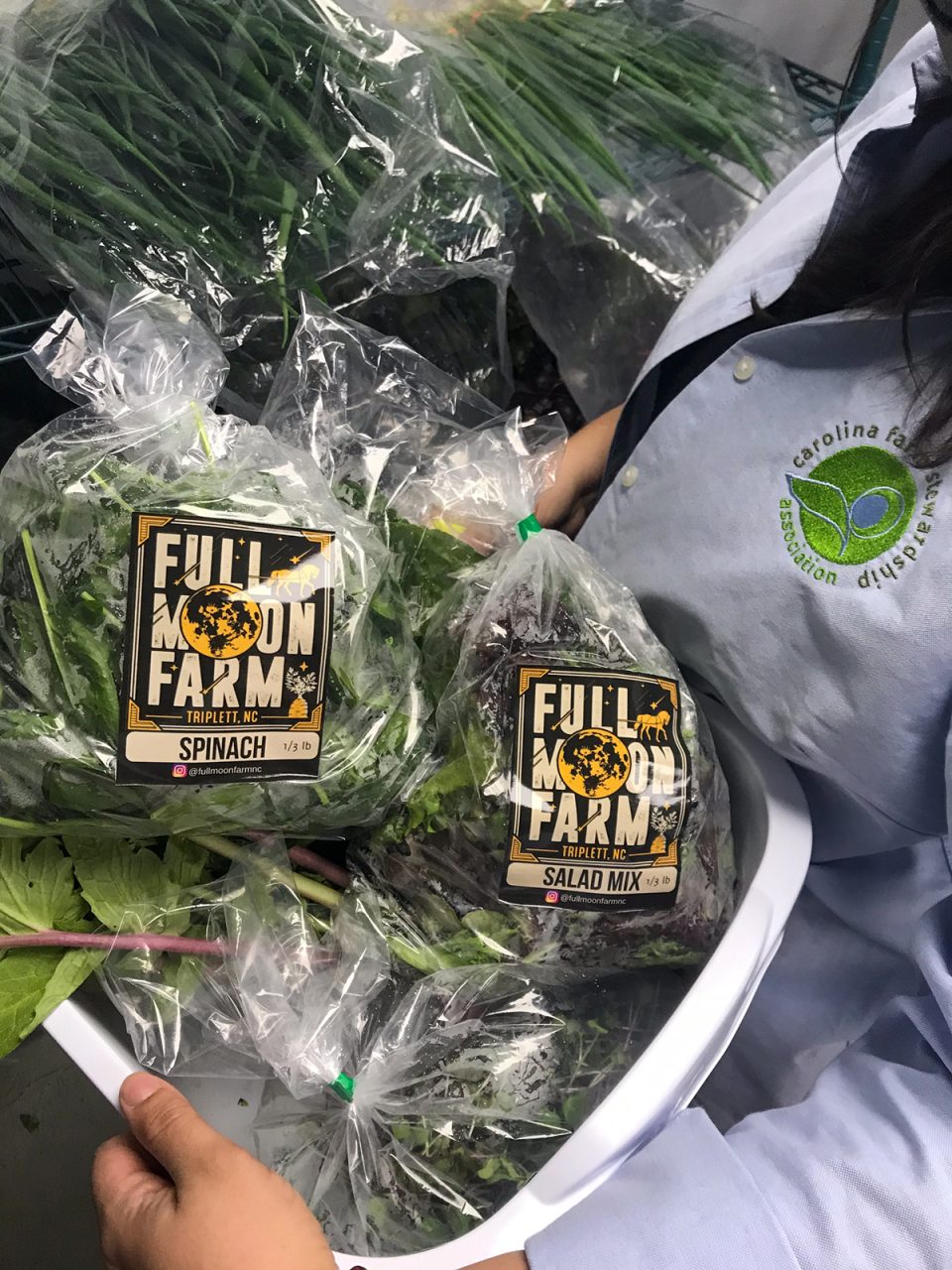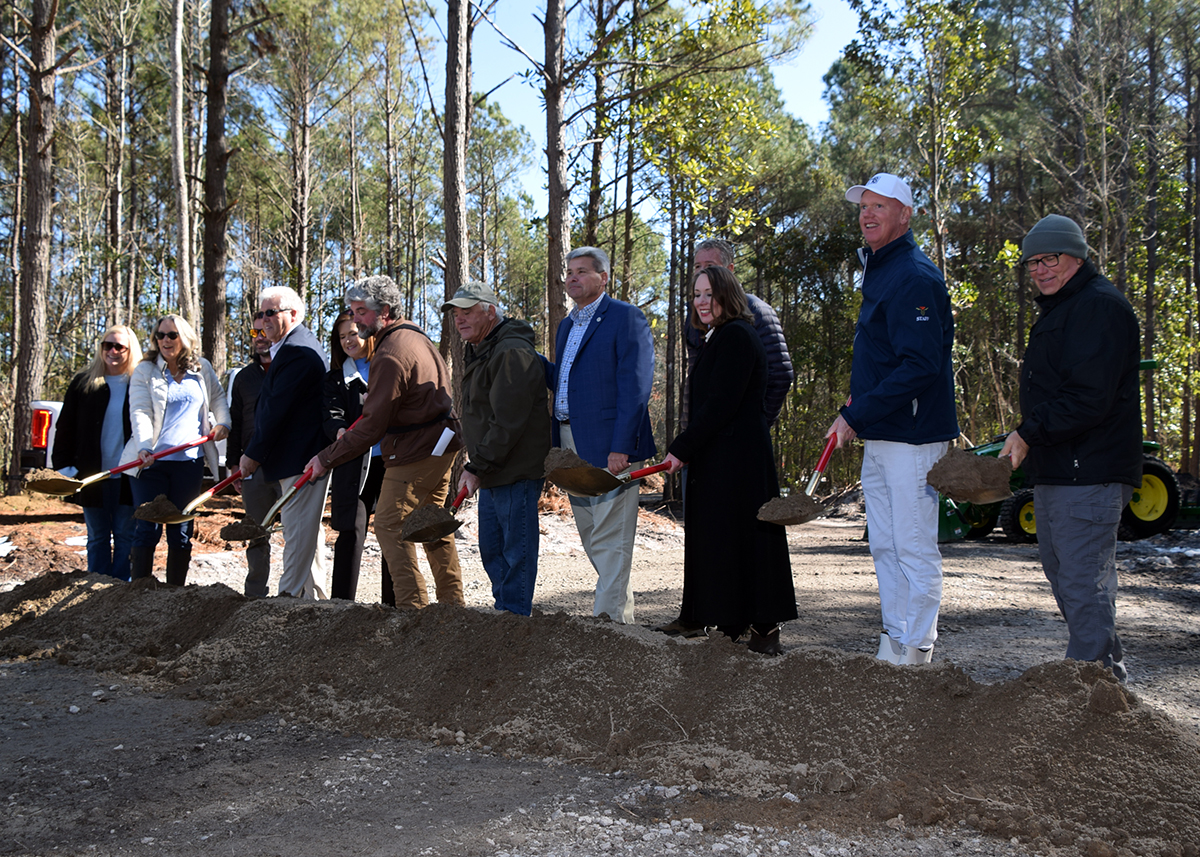
A farm-to-table program created to provide fresh, locally grown vegetables, fruits and produce to out-of-work food service employees during the pandemic shutdown will be expanding in North Carolina.
FarmsSHARE, a statewide food assistance program, has received a more than $7 million federal grant to boost efforts linking small farmers and businesses with underserved communities, including those in several coastal counties.
Supporter Spotlight
The U.S. Department of Agriculture awarded a little more than $7.6 million grant to the N.C. Department of Agriculture and Consumer Services, which then passed on $7.58 million to the Carolina Farm Stewardship Association, or CFSA.
CFSA runs FarmsSHARE, a program created in 2020 in response to the COVID-19 pandemic shutdown.
But, as Kana Miller, CFSA’s local food distribution coordinator, explained, the program that was meant to be temporary steadily grew into what is now a network of food hubs, farmers and community-based organizations “working together to increase access to fresh, healthy, locally-grown food in underserved communities across our state while investing in small North Carolina businesses to cultivate a stable, thriving local food system.”

In just a little more than a year and a half, FarmsSHARE raised $3.6 million in state and other funding, a majority of which was invested directly in local farmers and food hubs, Miller said in an email.
CFSA allocates funds to a network of food hubs, which use the money to buy food from local farmers and small businesses. The food the hubs buy then gets distributed by the hubs themselves or community-based organizations that partner with those hubs.
Supporter Spotlight
“Most of our food hubs partner with local food pantries, faith-based organizations, school groups, community centers, senior housing authorities, etc., to distribute the food directly to individuals in need, free of charge,” Miller said.
With the funds raised between May 2020 and December 2022, FarmsSHARE bought more than 460 tons of locally grown produce, meat, dairy, grain, honey, jam and eggs through 15 hubs and cooperatives sourcing from 250 small and midscale farmers in more than 55 counties, she said.

During that time, more than 85,000 boxes of food were distributed to more than 1,500 households each week.
Miller said the grant will allow FarmsSHARE to work with more food hub partners and community-based organizations to procure and distribute 133,000 boxes of local food from 450 local farmers.
“We’ll also be able to assist the participating food hubs and farms in entering new markets for local food and provide technical assistance to small farms on food safety,” she said. “With this funding, we have formed new partnerships in more counties in Western North Carolina, and we plan to fill in additional gaps in our state’s Piedmont Triad and Northeastern regions.”

Feast Down East, a Pender County-based FarmsSHARE food hub partner, will continue its reach into rural communities, said the program’s Executive Director Jordyn Appel-Hughes.
“A lot of our expansion efforts into rural communities came out of FarmsSHARE,” she said.
Feast Down East was formed as a grassroots initiative initially called the Southeastern North Carolina Food Systems Program in 2006 in response to job loss and poverty in the region.
Farmers impacted by the mid-2000s tobacco buyouts were brought to the table to talk about alternative crops to harvest.
As the program evolved, eventually becoming a food hub, it provided a path to get regionally based crops from small and midsize farms directly to everyone from restaurant chefs and residents who are seeking fresh, local food to people living in food deserts.
Feast Down East distributes food to people in need through dozens of partners in Pender, Brunswick, New Hanover, Carteret, Bladen, Columbus, Duplin, Onslow, Hoke, Robeson and Sampson counties.
Appel-Hughes, who took the helm at Feast Down East in 2015, explained that the program really began to expand in counties outside of New Hanover County as a result of Hurricane Florence. The September 2018 storm’s historic rainfall resulted in flooding that made it difficult to get into some rural communities.
It wasn’t until Appel-Hughes began to assist both farmers and people in those rural communities that she understood just how much of need there is in those areas.
So, as food service workers began returning to work as pandemic restrictions slowly lifted and FarmsSHARE pivoted to reach communities that struggle to access food, Appel-Hughes wanted to make sure Feast Down East focused on rural communities.
“FarmsSHARE has been really powerful for us,” she said. “It increased our farmers’ sales by about 33 percent last year.”
Morgan Milne, owner of Red Beard Farms in Willard, was just 24 and passionate about getting fresh, locally grown food to anyone who wanted it when he started his farm.
“It’s a passion of mine,” he said. “It’s important. You quickly learn no, you do actually have to make money and so you have to find some balance there. Working with Feast Down East has absolutely increased our footprint. It’s helped maintain a source of income. I was never one to rely on one particular source of sales.”
Milne grows more than 60 different types of vegetables, including more than 100 different varieties of cauliflower along with carrots, strawberries, kale, collards, cabbage and basil varieties, arugula, Okra, sweet potatoes and shitake mushrooms.
His farm distributes more than 70 food boxes a week to households in need.







